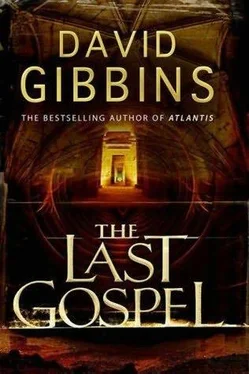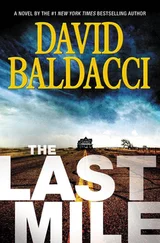David Gibbins - The Last Gospel
Здесь есть возможность читать онлайн «David Gibbins - The Last Gospel» весь текст электронной книги совершенно бесплатно (целиком полную версию без сокращений). В некоторых случаях можно слушать аудио, скачать через торрент в формате fb2 и присутствует краткое содержание. Жанр: Прочие приключения, на английском языке. Описание произведения, (предисловие) а так же отзывы посетителей доступны на портале библиотеки ЛибКат.
- Название:The Last Gospel
- Автор:
- Жанр:
- Год:неизвестен
- ISBN:нет данных
- Рейтинг книги:5 / 5. Голосов: 1
-
Избранное:Добавить в избранное
- Отзывы:
-
Ваша оценка:
- 100
- 1
- 2
- 3
- 4
- 5
The Last Gospel: краткое содержание, описание и аннотация
Предлагаем к чтению аннотацию, описание, краткое содержание или предисловие (зависит от того, что написал сам автор книги «The Last Gospel»). Если вы не нашли необходимую информацию о книге — напишите в комментариях, мы постараемся отыскать её.
The Last Gospel — читать онлайн бесплатно полную книгу (весь текст) целиком
Ниже представлен текст книги, разбитый по страницам. Система сохранения места последней прочитанной страницы, позволяет с удобством читать онлайн бесплатно книгу «The Last Gospel», без необходимости каждый раз заново искать на чём Вы остановились. Поставьте закладку, и сможете в любой момент перейти на страницу, на которой закончили чтение.
Интервал:
Закладка:
The Last Gospel
David Gibbins
… he perished in a catastrophe which destroyed the loveliest regions of the earth, a fate shared by whole cities and their people, and one so memorable that it is likely to make his name live for ever; and he himself wrote a number of books of lasting value: but you write for all time and can still do much to perpetuate his memory. The fortunate man, in my opinion, is he to whom the gods have granted the power either to do something which is worth recording or to write what is worth reading, and most fortunate of all is the man who can do both …
Pliny the Younger, Letter to the historian Tacitus. c. AD 106Prologue
T he old man limped to the brink of the chasm, the firm grasp of his freedman all that prevented him from pitching forward. Tonight was a full moon, a red moon, and the swirl of vapours that filled the crater seemed to glow, as if the fires of Vulcan were burning through the thin cusp of ground that divided the world of the living from the world of the dead. The old man peered over the edge, felt the warm blast on his face and tasted the tang of sulphur on his lips. Always he was tempted, but always he held back. He remembered the words of Virgil, the poet whose tomb they had passed on the way to this place. Facilis descensus Averno. It is easy to descend to the underworld. Not so easy to get out again.
He turned away, and drew his hood up to conceal his face. Behind them he glimpsed the dark cone of Vesuvius over the bay, the towns of Herculaneum and Pompeii glimmering like sentinels on either side. The great bulk of Vesuvius was reassuring on nights like these, when the earth shuddered and the reek of sulphur was almost overwhelming, when the ground was littered with the bodies of birds which had flown too close to the fumes. And always there were the harbingers of doom, madmen and charlatans who lurked in the shadows ready to prey on the gullible, on those who came to this lookout to gape and gawk, but who never went further. One was here now, a wild-haired Greek who leapt up from an altar beside them, hands cupped forward in supplication, flailing and foaming, babbling about a great plague, that Rome would burn, that the sky would rain blood, that the land below Vesuvius would be consumed by the fires within. The freedman pushed the beggar roughly aside, and the old man muttered in annoyance. This was not a place where anyone needed a soothsayer to interpret the will of the gods.
Moments later they slipped through a fissure in the rock known only to the crippled and the damned, where the old man had first been brought as a boy more than eighty years before. He still remembered his terror, standing here weeping and trembling, his head jerking uncontrollably with the palsy. There was to be no cure, but those who took him in gave him solace, gave him the strength to defy others who wanted him never to be seen in Rome again. Even now he had not shaken off the fear, and he whispered his own name, steeling himself. Tiberius Claudius Drusus Nero Germanicus. Remember who you are. Remember why you are here.
Slowly they descended, the old man dragging his bad leg behind him, his hands leaning heavily on his freedman in front. On most nights the heavens were visible through the rent at the top of the fissure, but tonight the rock-cut steps were wreathed in a swirl of vapour that seemed to suck them down. Dark corners were lit by burning torches, and in other places orange light flickered through from outside. They reached a ledge above the floor of the crater, and the old man strained to see what he could not make out from above. Swirling gases seemed to float on a layer of emptiness over the rocky floor, an invisible poison that extinguished flames and suffocated all who fell into it. Somewhere beyond lay the entrance to Hades itself, a burning gash that split the rock, surrounded by the charred skeletons of those who had left their bodies behind on the way to Elysium. For a second he saw slits of red like glowing eyes in the rock, and then he watched a molten mass seep out and solidify, leaving shapes like gigantic limbs and torsos imprisoned in a writhing mass on the crater floor. The old man shuddered, and thought again of Virgil. It was as if those who had chosen to leave the mortal life in this place were straining for renewal, as giants and titans and gods, yet were doomed to eternity as inchoate, Protean forms, forms that nature had begun but would never finish, forms like himself.
The scene vanished in the vapours like a dream, and they pressed on, the old man staggering and panting behind the freedman. His vision tunnelled and blurred, as it did often these days, and he paused to rub his eyes and squint ahead. They reached a causeway, a raised path shrouded in yellow smoke rising from vents in the ground and hemmed in on either side by pools of boiling mud, heaving and juddering. He had been told that these were the tormented souls in purgatory pushing upwards, desperate to escape, that the hissing gas was their exhalations, like the ill humours rising from a charnel pit. The old man had seen that before, when his legionary commanders had brought him to the pits where they had flung the dead Britons, bodies that still shifted under the soil weeks after the slaughter. He grimaced, remembering his nausea, and they pressed on, past the steaming fumaroles into the gloom ahead.
Out of nowhere hands reached towards him, and he could sense ghostly forms lining either side of the causeway, some hauling themselves up on withered limbs from the edge of the crater. His freedman walked ahead with arms outstretched, his palms facing outwards and touching theirs, creating a space behind for the old man to follow. He heard low chanting, a soloist and then many voices responding, a rustling noise like fallen autumn leaves lifted on a gust of wind. They were singing the same words, over and over again. Domine Iumius. Lord, we shall come. There was a time when Claudius would have walked among them, been one of them. But now they made the sign with their hands as they reached towards him, fingers crossed, and they whispered his name, then the name of the one they knew he had touched. His friend Pliny had seen it too, had gone in disguise among his sailors at the naval base at the head of the bay, had seen knots of men and women listening in dark alleyways and the back rooms of taverns, had heard talk of a new priesthood, of those they called apostoles. The great poet Virgil had foretold it, Virgil who had trodden this very path a hundred years before, who had sought his wisdom too in the message of the leaves. A boy’s birth. A golden race arising. A world at peace, freed from never-ceasing fear. Yet a world where temptation lurked, where men would once again arise to place themselves between the people and the word of God, where terror and strife might rule again.
The old man kept his gaze steadfastly down, and limped on. For twenty-five years now he had lived in his villa beneath the mountain, a humble historian with a lifetime’s work to complete. Twenty-five years since he, ruler of the greatest empire the world had ever known, had supposedly died by poison in his palace in Rome, spirited away one night never to return. An emperor who lived on not as a god, but as a man. An emperor with a secret, with a treasure so precious it had kept him alive all these years, watching, waiting. Few others knew of it. His friend Pliny. His trusted freedman Narcissus, here today. Yet now these others treated him with a strange reverence, hung on his every word as if he were a soothsayer, as if he were the oracle herself. The old man muttered to himself. Tonight he would fulfil a promise he had made beside a lake long ago, to one who had entrusted him with his word, his written word. It was the old man’s final chance to shape history, to achieve more than he ever could as emperor, to leave a legacy that he knew could outlast even Rome itself.
Читать дальшеИнтервал:
Закладка:
Похожие книги на «The Last Gospel»
Представляем Вашему вниманию похожие книги на «The Last Gospel» списком для выбора. Мы отобрали схожую по названию и смыслу литературу в надежде предоставить читателям больше вариантов отыскать новые, интересные, ещё непрочитанные произведения.
Обсуждение, отзывы о книге «The Last Gospel» и просто собственные мнения читателей. Оставьте ваши комментарии, напишите, что Вы думаете о произведении, его смысле или главных героях. Укажите что конкретно понравилось, а что нет, и почему Вы так считаете.












